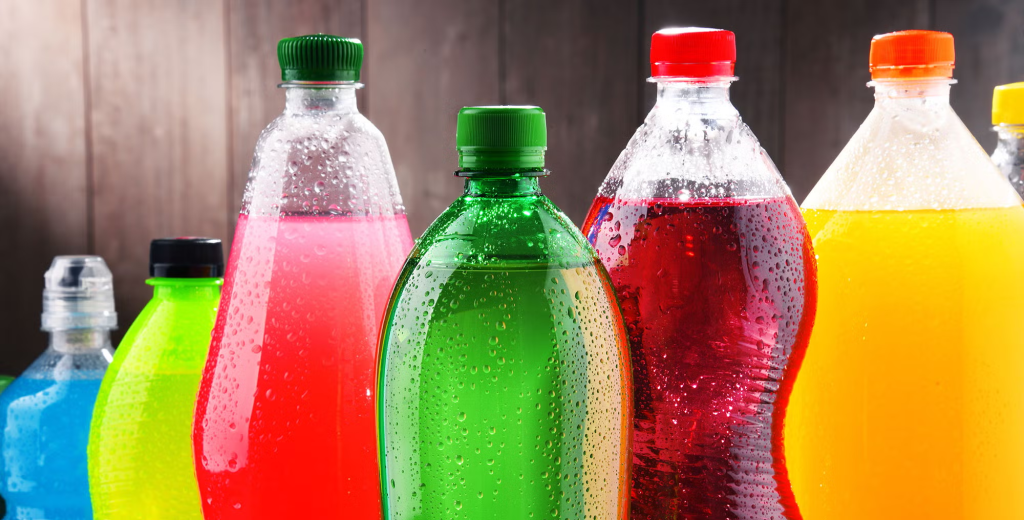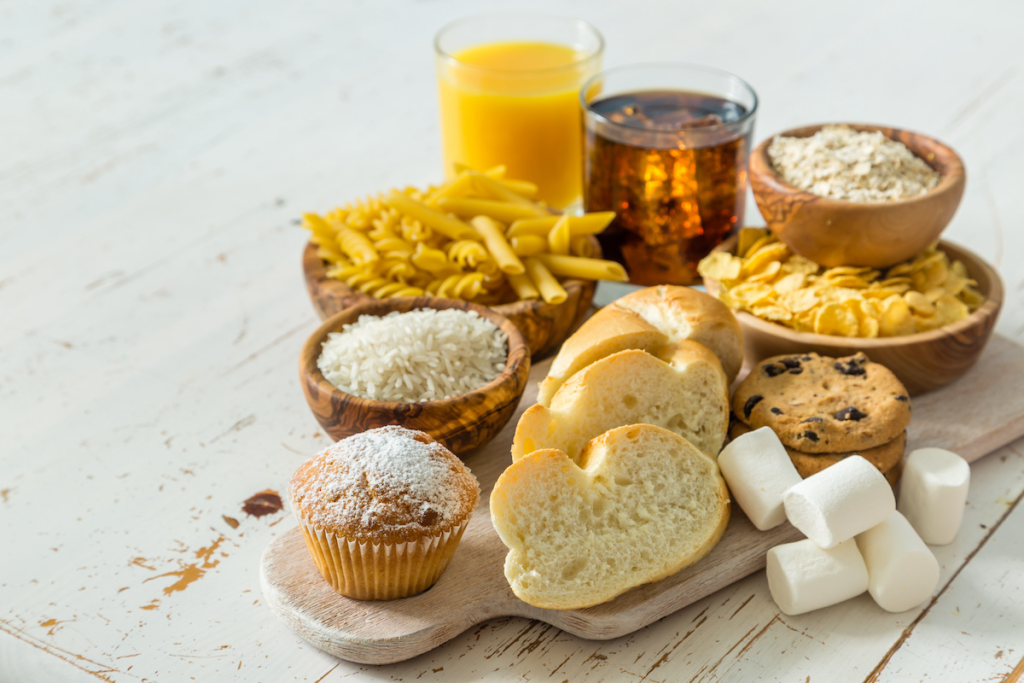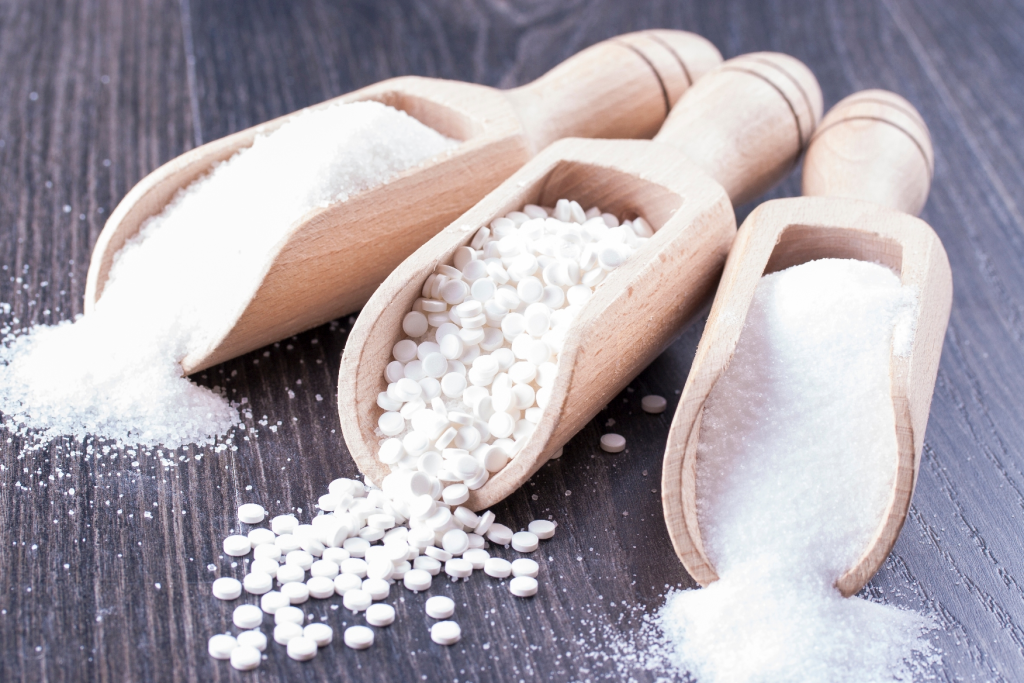Do you feel foggy, forgetful, or mentally drained more often than you’d like? Before blaming your busy schedule or screen time, take a closer look at your plate.
Here’s the truth:
Certain foods we eat daily — even those considered “normal” or “harmless” — might be slowly sabotaging our brain health. The shocking part? You probably have some of these brain drainers in your pantry right now.
Let’s uncover the 7 surprising foods that could be dulling your mental edge and what you should be eating instead to protect and power up your brain.

1. Sugary Drinks – The Liquid Fog

Why It’s Harmful:
Sugary sodas, energy drinks, and even store-bought fruit juices spike your blood sugar rapidly. Over time, this can cause insulin resistance in the brain, linked to memory decline and an increased risk of Alzheimer’s.
Brainy Swap:
Infused Water or Green Tea – Hydrates while delivering antioxidants and compounds that support brain connectivity.
Did You Know?
The brain is about 75% water. Even mild dehydration can shrink brain tissue and impair focus.
2. Processed Meats – The Brain’s Silent Inflammation Trigger

Why It’s Harmful:
Bacon, sausages, deli meats, and hot dogs often contain nitrites, excess sodium, and preservatives that trigger neuroinflammation and oxidative stress.
Brainy Swap:
Grilled turkey breast or wild salmon – Rich in omega-3s and lean protein to support memory and cognitive function.
Myth Busted:
“All protein is good protein.” Not if it’s heavily processed. The source and quality matter greatly for brain health.
3. Refined Carbs – The Blood Sugar Rollercoaster

Why It’s Harmful:
White bread, pastries, and most breakfast cereals cause rapid glucose spikes, followed by crashes — leaving your brain starved of steady fuel.
Brainy Swap:
Whole grains like oats, quinoa, or sprouted bread – These provide steady energy and are high in B-vitamins vital for brain function.
Interesting Fact:
People who consume high-glycemic diets are more likely to experience depression and anxiety, conditions closely tied to cognitive health.
4. Artificial Sweeteners – The False Friend

Why It’s Harmful:
Aspartame and sucralose, often found in diet sodas and “sugar-free” snacks, have been linked to mood disorders, reduced memory, and slower cognitive response.
Brainy Swap:
Stevia (natural and unprocessed) or a drizzle of raw honey – Provide sweetness with added antioxidants and fewer side effects.
Brain Warning:
A 2018 study found that long-term aspartame use may alter neurotransmitter production in the brain.
5. Fried Foods – The Brain Cell Killers

Why It’s Harmful:
High in trans fats and free radicals, fried foods damage the blood-brain barrier and lead to inflammation, a key player in brain aging.
Brainy Swap:
Air-fried or baked sweet potato wedges with olive oil – Healthy fats + antioxidants = brain fuel.
Did You Know?
Trans fats don’t just raise cholesterol — they impair memory by disrupting neuron communication.
6. Excessive Alcohol – The Memory Fader
Why It’s Harmful:
While moderate drinking may have some protective effects, excessive alcohol shrinks brain volume, disrupts neurotransmitters, and weakens memory over time.
Brainy Swap:
Kombucha or sparkling water with berries – Refreshing, flavorful, and gut-friendly (which also supports the brain!).
Quick Fact:
Your brain’s prefrontal cortex (responsible for decision-making and focus) is one of the first regions affected by alcohol.
7. Margarine and Hydrogenated Oils – The Sneaky Brain Blockers
Why It’s Harmful:
These oils are full of trans fats, which hinder blood flow to the brain and reduce brain-derived neurotrophic factor (BDNF) — a protein essential for learning and memory.
Brainy Swap:
Avocados, extra virgin olive oil, or raw nuts – These are rich in healthy fats that protect and nourish the brain.
Myth Busted:
“Margarine is healthier than butter.” In reality, margarine often contains artificial ingredients that harm brain health, while grass-fed butter (in moderation) contains nutrients like vitamin K2 and butyrate.
Bonus Brain-Smart Tips
While avoiding harmful foods is crucial, adding more brain-boosting options is just as important. Here are some superstars:
- Blueberries – Packed with antioxidants and anthocyanins that fight oxidative stress.
- Turmeric – Its compound curcumin supports memory and reduces depression.
- Dark chocolate (70%+) – Contains flavonoids that enhance cognitive performance.
- Walnuts – Their shape isn’t the only brainy thing — they’re full of omega-3s and polyphenols.
Final Thoughts: Your Brain Deserves Better
Your brain is the command center of your body — it deserves food that fuels, not fogs.
By making mindful swaps and choosing nourishment over convenience, you’re not just protecting your cognitive future — you’re enhancing your daily mental clarity, focus, and mood.
Start today. One smart choice at a time.
Your sharper, healthier brain will thank you tomorrow.
Frequently Asked Questions (FAQs)
Are artificial sweeteners better than sugar for brain health?
Not necessarily. Some artificial sweeteners, like aspartame, have been linked to negative effects on mood and cognitive performance. Natural sweeteners like stevia or small amounts of raw honey are better alternatives.
Can diet really impact memory and mental clarity?
Absolutely. What you eat affects neurotransmitter production, brain inflammation, and energy levels — all of which influence memory, concentration, and overall cognitive function.
What are the best foods to boost brainpower?
Foods like blueberries, walnuts, dark chocolate, fatty fish, turmeric, green tea, and leafy greens are known to improve brain health, enhance memory, and support focus.
How quickly can you see results after changing your diet?
Some people notice better focus and energy within a week of eliminating brain-draining foods. Long-term brain benefits, like memory and cognitive resilience, improve over months with consistent healthy eating.
Is coffee bad for the brain?
In moderation, no — coffee can actually enhance alertness and mood. However, overconsumption or pairing it with sugar-laden creamers can reduce its benefits and trigger brain fog or anxiety.
What foods are bad for your brain health?
Foods high in sugar, trans fats, artificial sweeteners, refined carbs, and preservatives — such as sugary drinks, fried foods, processed meats, and margarine — are known to impair cognitive function, memory, and focus over time.
How do sugary drinks affect the brain?
Sugary drinks can cause blood sugar spikes, leading to insulin resistance in the brain. Over time, this may contribute to cognitive decline, poor memory, and an increased risk of neurodegenerative diseases like Alzheimer’s.






Very good
Very good
Good
Awesome
Good
Good
Good
Awesome